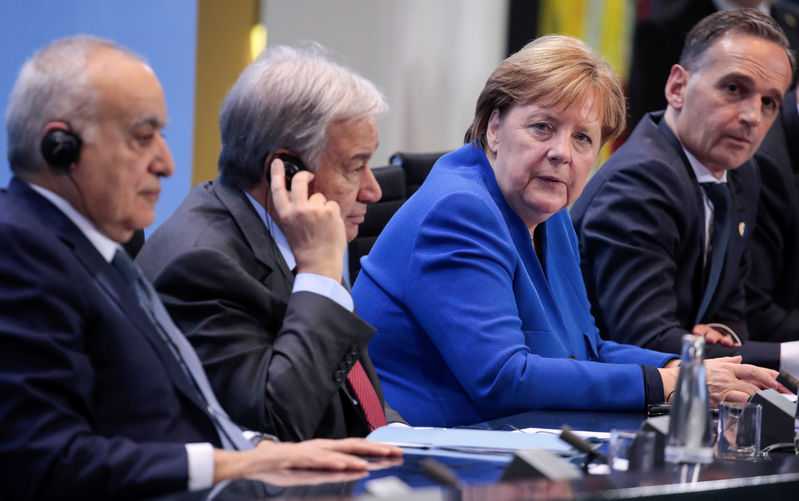Foreign powers back Libya ceasefire
21 January, 2020

Foreign powers agreed at a summit in Berlin on Sunday to shore up a shaky truce in Libya, but the meeting was overshadowed by blockades of oilfields by forces loyal to commander Khalifa Haftar that could cripple the country’s crude production.
Haftar, whose self-styled Libyan National Army (LNA) is bearing down on the capital, Tripoli, with the backing of Egypt, the United Arab Emirates, Russian mercenaries and African troops, attended the one-day summit in the German capital despite having abandoned talks over a ceasefire last week.
Turkey has rushed troops to Tripoli, as well as Turkish-backed fighters from Syria, to help Libya’s internationally recognised government of Prime Minister Fayez al-Serraj resist eastern commander Haftar’s assault.
Although there has been a lull in air strikes and less fighting over the past 10 days, heavy exchanges of artillery fire could be heard from some front lines south of Tripoli late on Sunday, residents said.
Libya has had no stable central authority since dictator Muammar Gaddafi was overthrown by NATO-backed rebels in 2011. For more than five years, it has had two rival governments, in the east and the west, with streets controlled by armed groups.
German Chancellor Angela Merkel told reporters that the Berlin summit, attended by the main backers of the rival Libyan factions, had agreed that a tentative truce in Tripoli over the past week should be turned into a permanent ceasefire to allow a political process to take place.
A special committee made up of five military officials from each side will monitor the truce, she said. Foreign powers active in Libya have committed themselves to uphold an existing U.N. arms embargo and stop shipping weapons there, she added.
Serraj and Haftar did not meet in Berlin, Merkel said, highlighting the gulf between the two.
“We know that we have not solved all of Libya’s problems today but we were aiming for fresh momentum,” she said.
Source: the-japan-news.com
